BMW iX1 VS Mercedes EQB
The BMW iX1 and Mercedes EQB represent two of the most compelling electric SUV offerings in the luxury segment, each boasting distinctive traits that cater to different tastes. While the iX1 emphasizes a sporty driving experience with its agile handling and impressive range, the EQB shines with its spacious interior and advanced tech features, making it ideal for families. Ultimately, the choice between these two electrifying models hinges on whether drivers prioritize performance or practicality in their daily journeys.
BMW iX1
The BMW iX1 stands out as a versatile addition to the electric vehicle market, seamlessly combining compact dimensions with advanced electric technology. Its sophisticated design elements and premium interiors ensure a luxurious driving experience, while the vehicle's performance focuses on delivering both efficiency and agility. With enhanced connectivity features and an emphasis on sustainability, this model represents a significant step forward in BMW's commitment to a greener future.
detailsMercedes EQB
The Mercedes-Benz EQB is an all-electric compact SUV that seamlessly blends practicality with modern luxury. Its sleek design and spacious interior make it an attractive option for families seeking both style and function. With advanced technology and impressive range capabilities, the EQB is a testament to Mercedes-Benz's commitment to sustainable mobility.
detailsThe electric vehicle market is expanding rapidly, with automakers rolling out innovative designs and technologies to meet the growing demand for sustainable transportation. Two premium compact electric SUVs that have piqued interest are the BMW iX1 and the Mercedes EQB. Both vehicles offer their own unique features, capabilities, and styling cues aimed at the modern driver. In this article, we will delve into a detailed comparison of these two electric SUVs.
Design and Dimensions
Starting with design, the BMW iX1 presents a sporty and dynamic appearance with its signature kidney grille and streamlined silhouette. It has a length of 4500 mm, width of 1845 mm, and a height of 1616 mm, making it a compact but spacious option for urban and suburban driving.
On the other hand, the Mercedes EQB boasts a slightly larger footprint, measuring 4684 mm in length, 1834 mm in width, and standing at 1654 mm (or 1689 mm for the EQB 350 variant). This gives it a more imposing presence on the road. Its clean lines, modern front fascia, and LED lighting add a touch of elegance typical of Mercedes-Benz vehicles.
Performance and Powertrain
When it comes to performance, the BMW iX1 offers two power configurations: 204 HP in the standard variant and up to 313 HP in the all-wheel-drive version. The iX1 can accelerate from 0-100 km/h in as little as 5.6 seconds, while its electric range reaches up to 463 km, thanks to its 64.8 kWh battery capacity. The energy consumption is rated from 15.8 kWh/100km to 17.1 kWh depending on the specific model.
Conversely, the Mercedes EQB features a broader range of power options, offering configurations from 190 HP to a powerful 292 HP in the EQB 350 variant. Its acceleration is impressive, with the top variant reaching 0-100 km/h in just 6.2 seconds. The EQB can achieve an electric range of up to 533 km with its 70.5 kWh battery, also showcasing a commendable energy consumption of approximately 15.2 kWh/100km.
Interior and Technology
Inside, both vehicles deliver on luxury and functionality. The BMW iX1 focuses on a driver-centric cockpit, equipped with dual digital displays as part of its iDrive system, enhancing the overall technological experience. The interior is spacious, comfortably seating five passengers, and boasts a trunk capacity of 490 liters.
The Mercedes EQB, similarly, offers a high-tech interior featuring the MBUX infotainment system, which includes a vibrant touchscreen and advanced voice control capabilities. Like the iX1, it also provides comfortable seating for five and a trunk capacity of 495 liters, making both vehicles practical choices for families or daily commuting.
Charging and Sustainability
Both vehicles are designed with efficiency in mind. The BMW iX1, with a battery capacity of 64.8 kWh, allows for easy charging options and offers a competitive energy efficiency rating. Its high CO2 efficiency class of A signals a commitment to sustainability.
Meanwhile, the Mercedes EQB's larger battery capacity of 70.5 kWh offers similar advantages, combined with fast-charging capabilities that make it convenient for longer trips. Both vehicles emit zero tailpipe emissions, further affirming their eco-friendly stance.
Conclusion
Ultimately, choosing between the BMW iX1 and the Mercedes EQB boils down to personal preference and specific needs. The iX1 seems to favor performance and a sporty drive, while the EQB leans towards practicality and family-friendly features. With both models showcasing advanced technology, sustainable engineering, and impressive performance, electric SUV buyers will find enticing options in either vehicle.
As the automotive landscape continues to evolve, the BMW iX1 and Mercedes EQB symbolize the exciting future of electric mobility while catering to the discerning tastes of modern consumers.
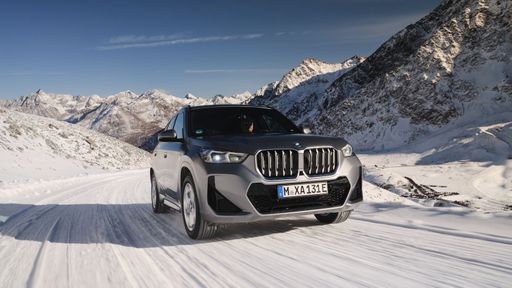 @ press.bmwgroup.com
@ press.bmwgroup.com
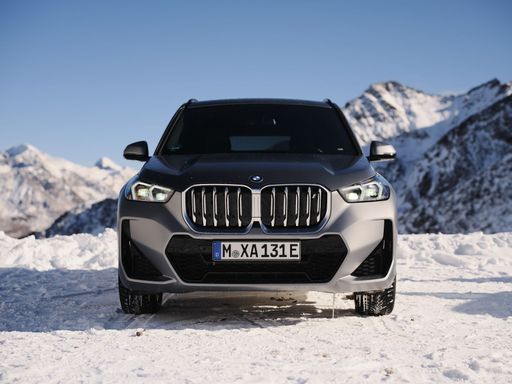 @ press.bmwgroup.com
@ press.bmwgroup.com
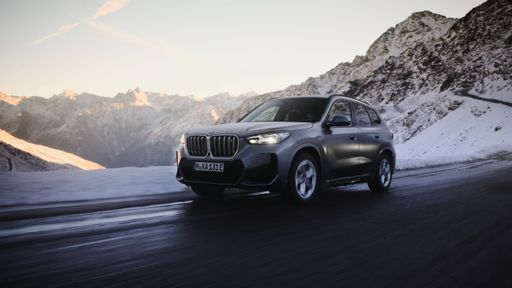 @ press.bmwgroup.com
@ press.bmwgroup.com
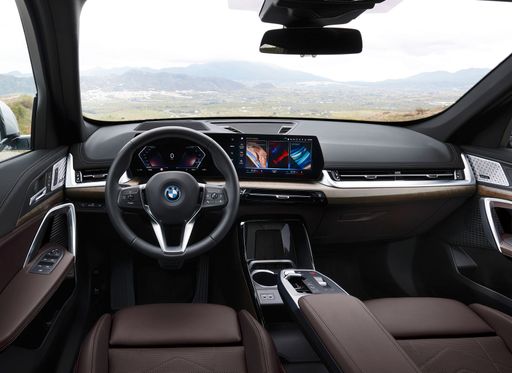 @ press.bmwgroup.com
@ press.bmwgroup.com
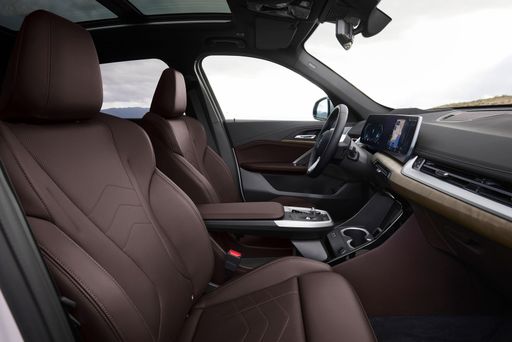 @ press.bmwgroup.com
@ press.bmwgroup.com
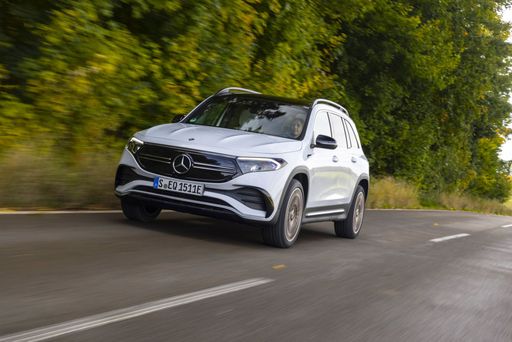 @ group-media.mercedes-benz.com
@ group-media.mercedes-benz.com
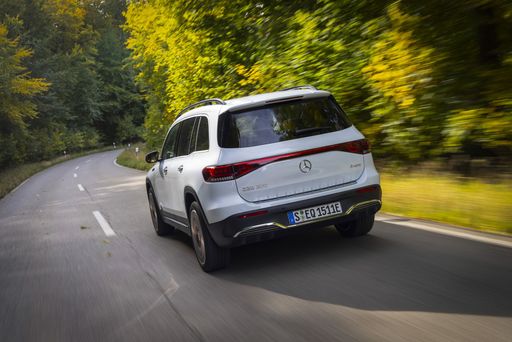 @ group-media.mercedes-benz.com
@ group-media.mercedes-benz.com
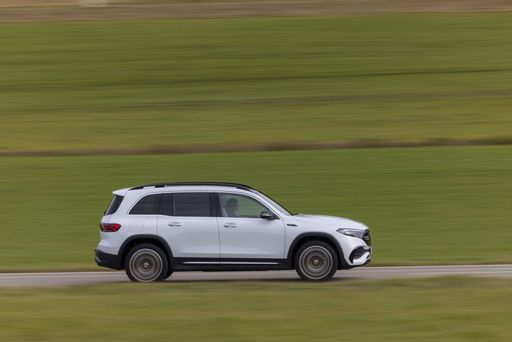 @ group-media.mercedes-benz.com
@ group-media.mercedes-benz.com
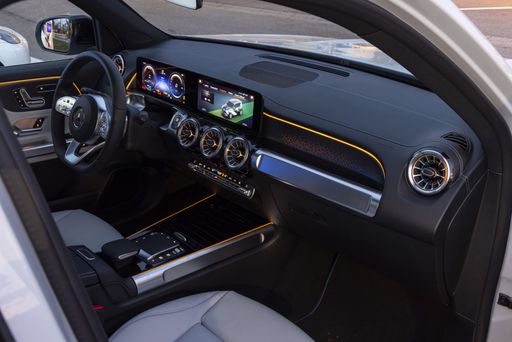 @ group-media.mercedes-benz.com
@ group-media.mercedes-benz.com
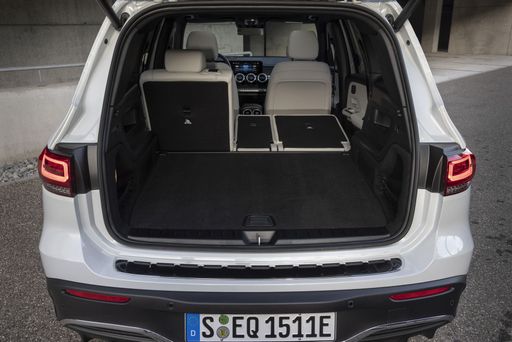 @ group-media.mercedes-benz.com
@ group-media.mercedes-benz.com

|

|
|
|
|
Costs and Consumption |
|
|---|---|
|
Price
about 44700 - 58400
$
|
Price
about 49500 - 63500
$
|
|
Consumption L/100km
-
|
Consumption L/100km
-
|
|
Consumption kWh/100km
15.8 - 17.1
kWh
|
Consumption kWh/100km
15.2 - 17.3
kWh
|
|
Electric Range
436 - 463
km
|
Electric Range
445 - 533
km
|
|
Battery Capacity
64.8
kWh
|
Battery Capacity
66.5 - 70.5
kWh
|
|
co2
0
g/km
|
co2
0
g/km
|
|
Fuel tank capacity
-
|
Fuel tank capacity
-
|
Dimensions and Body |
|
|
Body Type
SUV
|
Body Type
SUV
|
|
Seats
5
|
Seats
5
|
|
Doors
5
|
Doors
5
|
|
Curb weight
1940 - 2085
kg
|
Curb weight
2105 - 2170
kg
|
|
Trunk capacity
490
L
|
Trunk capacity
495
L
|
|
Length
4500
mm
|
Length
4684
mm
|
|
Width
1845
mm
|
Width
1834
mm
|
|
Height
1616
mm
|
Height
1654 - 1689
mm
|
|
Payload
495
kg
|
Payload
435
kg
|
Engine and Performance |
|
|
Engine Type
Electric
|
Engine Type
Electric
|
|
Transmission
Automatic
|
Transmission
Automatic
|
|
Transmission Detail
Reduction Gearbox
|
Transmission Detail
Reduction Gearbox
|
|
Drive Type
Front-Wheel Drive, All-Wheel Drive
|
Drive Type
Front-Wheel Drive, All-Wheel Drive
|
|
Power HP
204 - 313
HP
|
Power HP
190 - 292
HP
|
|
Acceleration 0-100km/h
5.6 - 8.6
s
|
Acceleration 0-100km/h
6.2 - 8.9
s
|
|
Max Speed
170 - 180
km/h
|
Max Speed
160
km/h
|
|
Torque
250 - 494
Nm
|
Torque
385 - 520
Nm
|
|
Number of Cylinders
-
|
Number of Cylinders
-
|
|
Power kW
150 - 230
kW
|
Power kW
140 - 215
kW
|
|
Engine capacity
-
|
Engine capacity
-
|
|
Top speed
170 - 180
km/h
|
Top speed
160
km/h
|
General |
|
|
Model Year
2022 - 2023
|
Model Year
2024
|
|
CO2 Efficiency Class
A
|
CO2 Efficiency Class
A
|
|
Brand
BMW
|
Brand
Mercedes-Benz
|
BMW iX1
A New Era of Innovation: Meet the BMW iX1
The automotive world has seen a seismic shift towards sustainability and electrification, and BMW has solidified its place in this evolution with the introduction of the BMW iX1. As a fully electric SUV, the iX1 serves as a testament to how luxury, performance, and eco-consciousness can harmoniously blend in the modern automotive landscape.
Exquisite Design Meets Purposeful Engineering
The BMW iX1 is not just an electric vehicle; it's an embodiment of cutting-edge design and technology. With its bold SUV silhouette, the iX1 boasts dimensions of 4500 mm in length, 1845 mm in width, and 1616 mm in height, providing a spacious yet agile presence on the road. Its dynamic aesthetic is complemented by an aerodynamic form that enhances efficiency, offering a drag coefficient that rivals traditional SUV models.
Powertrain and Performance Specifications
Beneath the hood of the BMW iX1 lays an electric motor that signifies the future of automotive engineering. Available variants offer power outputs ranging from 204 to 313 PS (150 to 230 kW). The iX1 comes with either a front-wheel or all-wheel drivetrain, catering to different driving preferences. The xDrive30 variant, in particular, features all-wheel drive, delivering up to 313 PS for those who crave enhanced traction and control.
With a commendable electric consumption of 15.8 to 17.1 kWh per 100 km, the iX1 strikes a fine balance between power and efficiency. Its acceleration stats are equally impressive, with the ability to go from 0-100 km/h in as little as 5.6 seconds. This ensures that while it's eco-friendly, it does not compromise on the exhilaration factor. The vehicle can reach a top speed range between 170 and 180 km/h.
A Journey Without Interruptions: Range and Battery Life
The iX1's battery, boasting a capacity of 64.8 kWh, provides a substantial driving range of 436 to 463 km on a single charge, depending on the variant. This means long road trips are not only feasible but enjoyable, eliminating the range anxiety often associated with electric vehicles.
Comfort and Technological Interior
Inside, the iX1 exemplifies BMW’s commitment to luxury and innovation. It’s a five-seater SUV designed with comfort at its forefront, featuring advanced technological interfaces that enrich the driving experience. The spacious cabin offers 490 litres of boot space, ensuring practicality without sacrificing style.
In terms of monthly costs, owning an iX1 can range between €1,147 and €1,453, considering the zero-emission appeal with a CO2 efficiency class of A.
The Financial Aspect of Sustainability
With a price range from €48,400 to €63,140, the BMW iX1 isn't just a vehicle—it's an investment in sustainable motoring. Factoring in a cost of around 45.9 to 58.1 cents per kilometre, the iX1 offers an economically viable option for the eco-conscious driver.
Conclusion: The Future Is Now
The BMW iX1 stands as a beacon of what the future holds for zero-emission vehicles. With a melding of sustainability, performance, and luxury, it's not just a car, but a glimpse into the next chapter of automotive history.
Mercedes EQB
Introducing the Mercedes-Benz EQB: A New Era in Electric SUVs
The Mercedes-Benz EQB is a striking testament to the innovative prowess of Mercedes-Benz in the realm of electric vehicles. As an SUV designed for the future, the EQB merges luxury with sustainability, offering a remarkable driving experience complemented by state-of-the-art technology.
Powerful Performance and Efficient Design
Under the bonnet, the EQB is powered by an electric motor that produces between 190 to 292 PS, translating to 140 to 215 kW. This powerful engine allows the EQB to achieve a 0-100 km/h acceleration in just 6.2 to 8.9 seconds, rivaling many other vehicles in its class.
Fuel efficiency remains at the forefront of the EQB's design, with a consumption rate ranging from 15.2 to 17.3 kWh per 100 km. This efficiency ensures the vehicle maintains an impressive electric range between 445 to 533 km per charge, giving drivers the confidence to embark on longer journeys without constant recharging.
Cutting-Edge Technological Innovations
The EQB is packed with innovations that make driving an intuitive and seamless experience. The vehicle boasts a state-of-the-art emissions rating of zero CO2 per km, proudly placing it in the A class of CO2 efficiency. The integrated automatic transmission, specifically the Reduktionsgetriebe, offers smooth transitions and enhances overall driving comfort.
Roomy Interior and Premium Features
Step inside the EQB to find a spacious and luxurious interior, capable of accommodating five passengers comfortably. With a luggage capacity of 495 litres, this SUV caters to both adventure and everyday needs. The EQB comes available in several exquisite lines, including AMG Line Advanced and Electric Art Advanced Plus, ensuring there's a version to match every style preference.
Safety and Reliability
Safety has always been a priority for Mercedes-Benz, and the EQB continues this legacy. With an all-wheel-drive option on certain models, enhanced traction and stability are provided across a variety of driving conditions. Furthermore, the EQB's substantial weight range from 2105 to 2170 kg adds to its robust and stable feel on the road.
Pricing and Ownership Costs
The price of the EQB starts at €53,514, and the top-end models can go up to €68,734. Mercedes-Benz offers several financing options to suit various budgets, with running costs calculated at approximately 47.4 to 55.9 cents per kilometre, making it an economically viable choice for the environmentally conscious driver.
The Mercedes-Benz EQB is more than just a vehicle; it represents a shift towards a more sustainable future, without compromising on luxury or performance. Whether you're navigating city streets or venturing into the countryside, the EQB is engineered to deliver an exceptional driving experience every time.
